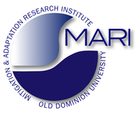News
|
Identifying and Articulating Knowledge Needs for the Implementation and Monitoring of the Sustainable Development Goals in Caribbean Small Island States and Matching Those Needs to Knowledge, Tools, and Data.
IT TAKES A GLOBAL VILLAGE —
Strengthen SDG Implementation in the Caribbean:
Turning Passion for the Ocean into Powerful Partnerships
Alwyn R. Ponteen,
MATLHE, Department of Agriculture, Fisheries Unit, P. O, Box 272, Brades Montserrat MSR 1110.
alwyncmrm@gmail.com, ponteena@gov.ms, LinkedIn: Alwyn Ponteen, Skype: alwyn.ponteen1
ABSTRACT
Montserrat Sustainable Development Plan (SDP) 2008-2020 like many of the Caribbean countries was developed within the framework of the Millennium Development Goals (MDGs). The SDP have been used as an overarching planning and policy document to guide Montserrat to a future of sustainable development.
As the MDG era came to an end of the Government of Montserrat (GoM) was invited to nominate a National Focal Point (NFP) alternate, Agency and supporting Committee to develop a Roadmap for the implementation and monitoring of the 2030 Agenda for Sustainable Development adopted by world leaders. There have been several challenges of implementation and monitoring. These include, a dedicated lead focal agency; national focal point and alternate; inadequate, political and administrative will; natural hazards; ministries working in silos; national priority; limited capacity; evidence based data; outdated legislation and policies and inadequate finances.
Notwithstanding, the Ministry with responsibility for sustainable fisheries and oceans have established critical partnerships and embarked on an ambitious self-sustaining Marine Spatial Planning (MSP) programme, aimed at improving ocean resources data management systems, knowledge and understand of the spatial distribution and characteristics of its commercial inshore fisheries and ocean related activities in waters under national jurisdiction in the future. These partnerships will ensure that GoM will achieve most if not all of SDG 14 and other supporting strategic goals.
Achieving the objectives of the 2030 SDGs requires collaborative partnerships and consorted efforts amongst all ocean dependant stakeholders including, Governments, civil society, private sector organizations, the entire local community, international development partners and academia.
Key words: Partnerships, Sustainable, Development, Goals, Fisheries and Ocean
Back to the Program ...
|




